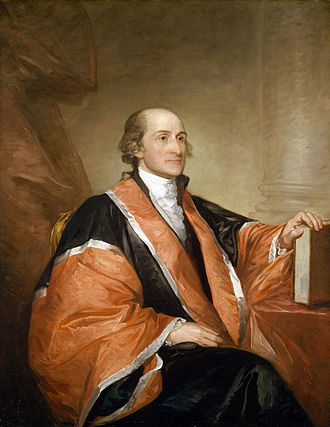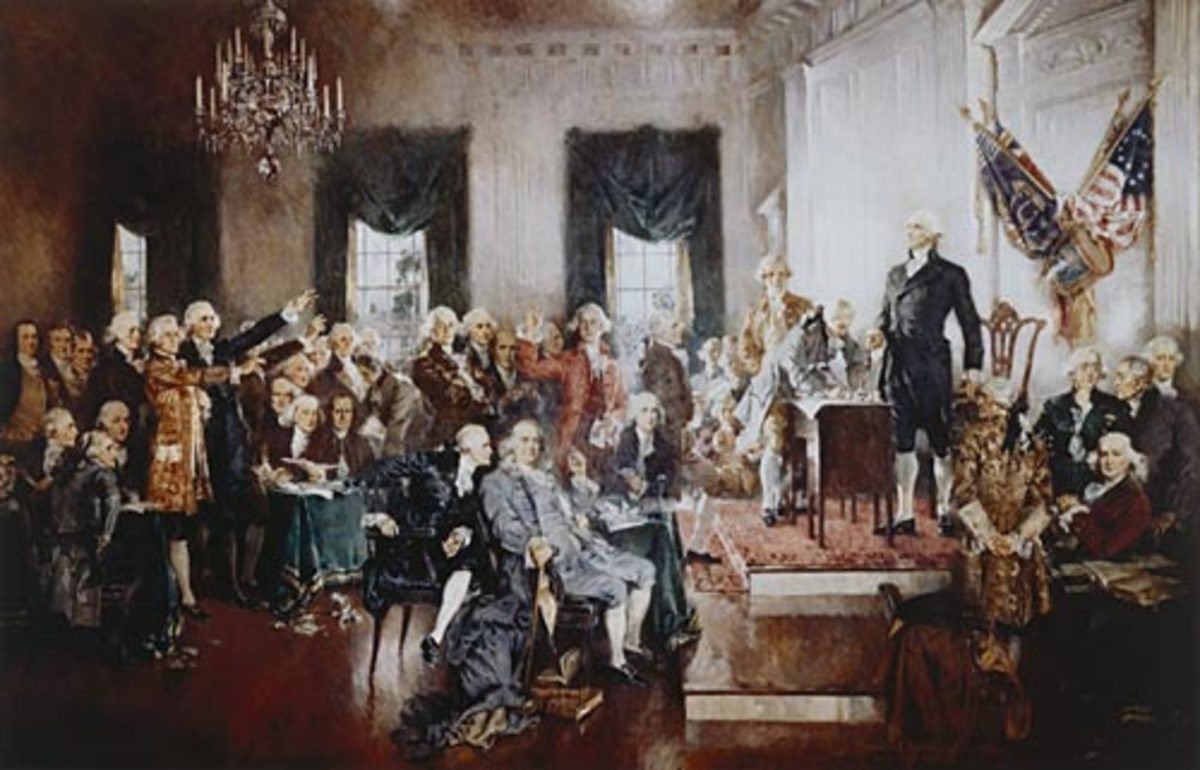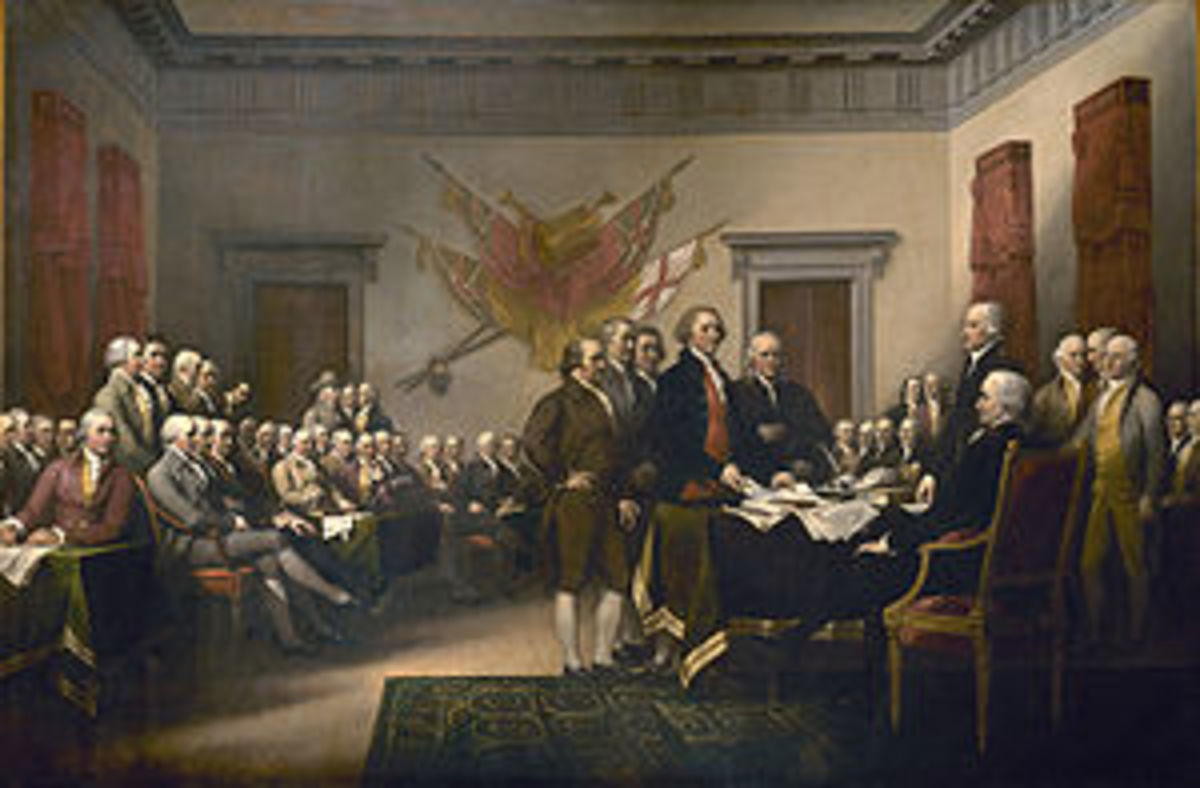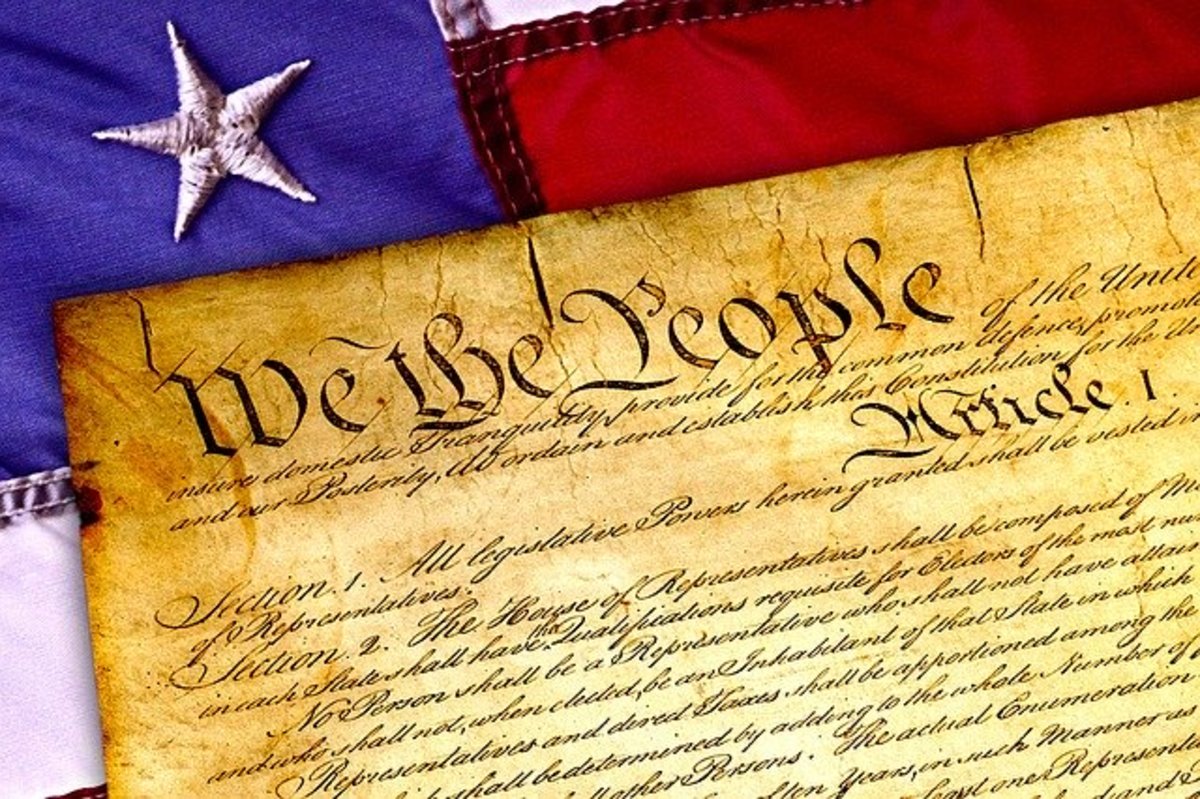American Politics: The "Federalist Papers" -Back In Perspective - FP# 2, Constitutional Convention; John Jay [281]
Chief Justice and NY Governor John Jay

Federalist Paper #2: Why a Constitutional Convention?
JOHN JAY1 KICKED OFF THE RATIONAL FOR RATIFYING THE NEW U.S. CONSTITUTION. The initial argument is probably the easiest to make and understand ... becoming a single republic is safer, vis-a-vis Europe's designs on America, than the alternatives of having 13 separate States or two or three smaller confederacies. The reason a small number of confederacies gained traction is because their are natural divides between the Northern, Mid-Atlantic, and Southern States in terms of geography, history, beliefs, and religion.
The last time man was in a Hobbesean theoretical "state of nature" was around 10,000 BCE; before animals were domesticated and agriculture developed. After that time people began gathering into small groups and started to voluntarily or involuntarily give up some degree of their liberty they previously had in this "state of nature". This was done in order to form some sort of government which, among other reasons, had the job to protect them at some level.
It is this idea which John Locke formally expanded into refocusing of the individual as the center of the universe, as it were, and all else, including government, grew from that fundamental and, at the time, revolutionary idea. Before that, history had evolved such that the State was superior to the individual; Locke turned that idea on its head. But Locke also realized that the nature of man, in order for the whole to survive, must voluntarily transfer some of their rights to a higher authority which they created and own. It is from this that Jay began is essay with
"Nothing is more certain than the indispensable necessity of government, and it is equally undeniable that whenever and however it is instituted, the people must cede to it some of their natural rights in order to vest it with requisites powers."
Then he lays out the fundamental question facing Americans in 1787 ... should this government be one nation under single, federal government or 2 to 3 confederacies or 13 separate States with various forms of state governments.
Jay points out, possibly self-servicing, that until recently most everybody agreed with the concept of a central government is essential to the continuing "prosperity" of their countrymen. Now, with the submittal of the new Constitution to the People certain politicians are arguing that the better result is from some subdivision of the nation. The fact is, politicians were arguing against the new Constitution before the Constitutional Convention ever convened as well as during it; some convention members left the debate out of protest when they saw the purpose was to supplant the Articles of Confederation.
Reasons varied then, from philosophical to pragmatic to self-aggrandizement which could be obtained from disunion. Those same reasons still existed as the Federalist Papers were being written, but now the competition gets serious because there are going to be real winners and losers. Jay, Hamilton, and Madison were determined not to be on the losing end.
Jay's opening salvo was to show that 1) America is blessed with abundant natural resources and 2) that its citizens descended from the "same ancestors, speaking the same language, professing the same religion, attached to the same principles of government, very similar in manners and customs ..." and suffered through the bloody battle to secure their liberty and freedom. After setting this stage, Jay then declares that "This country and this people seem to be made for each other ... that an inheritance so proper and convenient for a band of brethren, ... united to each other ... should never be split into a number of unsocial, jealous, and alien sovereignties." Definitely pulling on a lot of emotional strings; too bad he overstated the truth about the homogeneity of the new Americans, but then all is fair in love and the constitutional ratification wars isn't it.
Next Jay takes a swipe at the current form of government, meaning the single, powerless Congress created under the Articles of Confederation. He says "It is not to be wondered at, that a government instituted in times as inauspicious [the Revolutionary War), should on experiment be found greatly deficient and inadequate to the purpose it was intended to answer." In other words, the Continental Congress sucks.
The "snark" is not a modern day creation, by the way. Consider Jay's comment in starting of the next paragraph; "This (meaning the problems with the Articles of Confederation) intelligent people perceived and regretted these defects." And, as a result, the Constitutional Convention was convened.
Jay emphasizes the distinguished character of the delegates who attended; the attention to detail; and the lack of "having been awed by power, or influenced by any passions except love of country ...". This, of course, is to attest to how well thought out and crafted the resulting constitution was, implying its acceptability.
John Jay concludes by taking up refrain often heard today; that the "[P]eople have always thought right on this subject", that being forming and retaining a single Union. He goes so far as to say that "To preserve and perpetuate it was the great object of the people (delegates ?) in forming that convention ...". The refrain I am talking about is the use of the term "people", writ large, as if very few disagreed with the concept ... that is hardly the case. Just as it is today with the Right or the Left say "The People ..."; Jay and politicians like McConnell and Reid who invoke such claims know full well it is so much hyperbole.
Nevertheless, he presses the point by ending rather dramatically when referencing the failings of disunion by saying,
"That certainly would be the case, and I sincerely wish that it may be as clearly foreseen be every good citizen, that whenever the dissolution of the Union arrives, America will have reason to exclaim, in the words of the poet 'Farewell! A long farewell to all my greatness'."
1 John Jay wrote very few of the Federalist's Paper because of illness.
Demographic Survey #1
Politically Speaking, Do You Find Yourself Agreeing More With
Demographic Survey #2
Are You
Demographic Survey #3
What is Your Age
If You Are Serious About Politics - A Must Read
Interesting Links
- Where Did Today's Conservative, Republican, and Demo...
How American political parties came to be the way they are always fascinated me. So, I decided to write a history about it. This will be a developing project that will probably take a year; please come back often. - Racism In America: The Movie "THE HELP" and "12 YEAR...
Discrimination and bigotry is a terrible thing and - Thoughts on the Second Amendment (the Right to Bear ...
The right to bear arms is always a hot topic. As anyone actually considered the actual phrasing of the 2nd Amendment? - On Principle and Pragmatism II - Ratification of the...
Most Americans, including most Conservatives and Tea Party types, as well as Democrats, are not aware how close we came to not having an America at all. Roughly 50% of colonialists wanted something more like the what the European Union is today, exce - American Politics: The "Federalist Papers" Put Back ...
The original purpose of the Federalist Papers was to convince the delegates to the NY Constitutional Convention to ratify the proposed Constitution of the United States of America ... Much Has Changed




![On Principle and Pragmatism Ia - U.S. Constitutional Convention [9]](https://usercontent2.hubstatic.com/13151065_f120.jpg)




